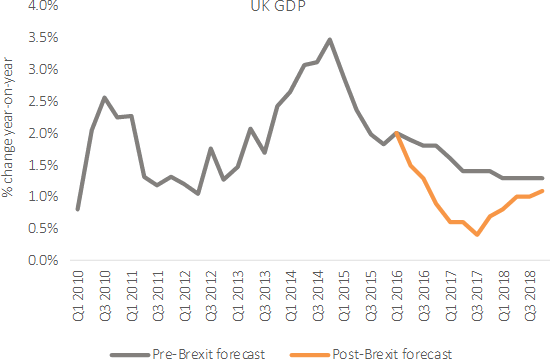
Disclaimer: As an Amazon Associate, “Furniture UK” earns from qualifying purchases.
With a nation in confusion and government divided, Brexit continued to draw much attention across Britain and the world. One of the significant moments in the history of Britain was on 23rd June when the country voted to exit the European Union. From a 72.2 percent turnout at the ballot, those who chose to leave were 51.9 percent. It was an outcome most pundits didn’t expect to happen, and the repercussions were almost immediate. The pound was hard hit and fell considerably as the stock market saw billions being wiped off. Even the Prime Minister could not believe the new normal and what had happened and chose to resign.
Uncertainty
It’s over a month since the penultimate vote, and uncertainty still looms. Of course, the road to actual European exit is not instant; the official process of separating the European Union and the UK has to be started by the Conservative Party in power. Conservatives have chosen Theresa May as the Prime Minister of Britain, replacing David Cameron. The new PM has the tough job of leading the country out of the EU. With the new government in place, the official exit mechanism should start by September, with the actual exit process expected to take at least 24 months. Currently, the nation remains uncertain, with reports of a more complex economy in the coming months and a life without the cover of the Union.
Across the divide, opinions are divided on how the economy and doing business will be affected by the referendum, with many concerns raised.
General pessimism
Consumer confidence has somehow been hard hit due to the ranging pessimism about the economic situation in the nation. Polls had been talking about the referendum before the vote was cast, painting a somewhat divided picture of what the future looked like for every Briton. Immediately after the vote, consumer confidence dwindled sharply since 1994, when the records started being kept.
The Pro-Brexit were very optimistic, with results mixed across age groups and regions. The general expectation was that 60 percent of people expected the economy to do worse in the next year, just 46 percent before the vote in June. Optimists expecting the economy to do well were only 20 percent against 27 percent before the vote. People who wish the cost of products to go up in the next year were just 13 percent before the referendum but rose to 33 percent after the vote.
Reduced spending
Analysis of consumer spending indicates that after Brexit’s success on the ballot, such sectors as grocery, Do It Yourself, living and home, fashion, lifestyle, and travel are most vulnerable to reduced spending by consumers who are wary of the future. History suggests that in times of profound uncertainty, buyers only turn to brands they know, trust and love purchasing due to guarantees of monetary value and quality. Analysts suggest that companies will benefit if they come out strongly to respond to the concerns raised by consumers to meet their various changing needs and anticipate them.
Predictable timelines
Government has the central role of bolstering consumer confidence within this short period of high uncertainty by ensuring predictable timelines have been put in place and following them closely. Changes in interest rates were seen as a significant effect that could spell doom or boost consumer confidence, and the Bank of England was seen as wary of a growing recession. As a result, the Bank of England has already cut interest in a move expected to avoid a recession.
After cutting the borrowing costs, the UK Central Bank also solidified its QE scheme and committed an additional £100 billion to encourage banks to keep lending. The interest rates were cut from 0.5 percent to 0.25 percent, the first of its kind since 2009. Perhaps the move by the Bank of England was made to try and ensure the British housing market is not dampened further; it could have appreciated in a way in the ever-changing London market while weakening retail sector prospects right from housewares, hardware, and furniture to carpets.
Retailers are expected to work hard to maintain low costs and deliver the best selections and options for consumers, perhaps, by ensuring no additional cost or a minimal increase in the price of goods entering the UK from Europe. Not many know how long the retail sector can withstand the pressure after enduring three hard months of serious Brexit campaigns. As such, retailers are not expected to hike prices at this uncertain time.
Not all gloom and doom for furniture sellers
Some of the top proponents of the EU exit were the leaders of the Manchester January Furniture Show. According to them, the global outlook of the UK furniture industry, the solid base of UK manufacturing and diverse suppliers from around the world means that the industry will not be affected by the EU exit as many expected since it’s not dependent only on the EU block for tr de. Once the pound is re-based, UK furniture manufacturers have the potential to be more competitive than ever before on the international stage.




![Report on the British educational furniture manufacturers group [BEFMG]](https://thehome.co.uk/wp-content/uploads/2018/02/report-furniture-uk.jpg)



